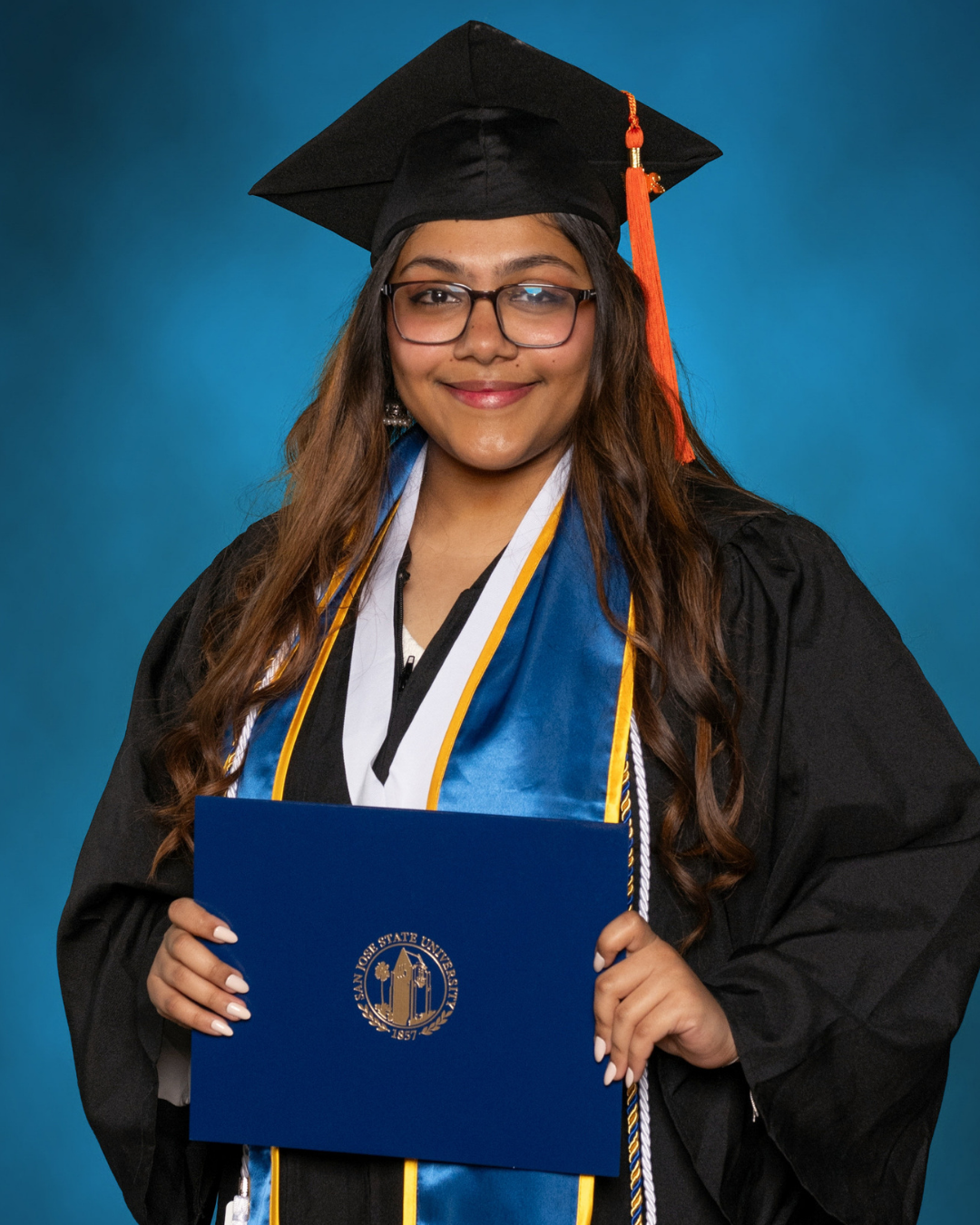Almost There: My Journey, and the Support That Made It Possible
My origin story? I grew up in Oman, and I always knew I wanted to do something bigger.
Even as a child, I dreamed about Silicon Valley. I wanted to be around innovation and to learn how ideas turn into real things. I’ve always been fascinated by electronics, wireless communication, signal processing, and all the cool subjects that come with them. Over time, that interest grew into a real passion for turning ideas into breakthroughs that could exist in the real world.
Finding My Place
Even though I applied to schools all across the country and was accepted into some amazing programs, I kept coming back to California. The Bay Area felt like where I belonged. That pull led me to San José State University, where I studied engineering technology with a minor in business. This is where my journey really began, and where I’ve been able to align my studies with the kind of work I get to do today.
I moved to the U.S. right in the middle of COVID. Classes were online, and it was hard to make friends. But I kept going. I became a resident adviser, peer tutor, and paid for much of my education myself. It was stressful at times, but I was determined to be independent.
How Scholarships Really Work
One thing a lot of people don’t realize is how the timing of scholarships adds pressure. You usually apply almost a year in advance, and then the funds don’t get disbursed until the following year. For example, if I wanted to use a scholarship in 2024, I would have had to apply for it back in 2023.
That means you often know you’ve been awarded something, but the money won’t show up for a semester or two. I had carefully run my numbers: in my last year, my first semester would be covered by what I earned from internships, and the second semester would be sustained by the scholarships I had already secured. On paper, I should have been fine.
When Things Almost Fell Apart
Then came January of my senior year. One of my scholarships was delayed. Suddenly, the careful plan I had built collapsed. I’ll never forget the date: tuition was due February 7, 2024, and I had no way to pay it.
Trust me when I say I did not have enough in my bank account to pay that by any means. I was barely making it through at that point in time. As an international student, I didn’t have many options. I couldn’t take a gap semester, because I would still owe base fees. And after four years of working hard, keeping up good grades, and even taking 21 credits a semester to stay on track, I was being told I might not graduate.
That’s when I went to my dean, Professor Nicole Okamoto. She told me about Last Mile Education Fund and encouraged me to apply. I didn’t know what to expect, but I was desperate.
Last Mile Stepped In
I got the funds literally a day before the tuition fee was due – I was amazed at how fast Last Mile came through. The reason I’m here today, the reason I graduated and am working—it’s all because of that support. So yeah, there are no words to explain how grateful I am.
Last Mile gave me the chance to cross the finish line. Without them, I would have had to walk away, even though I had done everything right.
In May 2024, I graduated with honors and was hired as a product line manager at Applied Materials. I chose Applied Materials from multiple offers I had because they support programs like the Applied Materials Momentum Fund, powered by Last Mile, which played a big role in helping me graduate. They believed in the mission of supporting students through the finish line, and I wanted to give back by being a living example of how that investment works out.
Semiconductors are a completely different world from the AI technologies most people talk about. What we do is essential: we build the machines that make semiconductor chips—the very foundation of the technologies shaping the future.
Go Spartans! Aburva graduates from SJSU
What Isn’t Obvious
A lot of people assume students don’t graduate because of grades. But from what I’ve seen, that’s rarely the reason. Most of the time, it comes down to money—and often at the very last moment.
These financial gaps don’t just affect students. They affect whole industries. In semiconductors, where I work now, there’s already a shortage of engineers. By 2030, the U.S. will need far more than we’re on track to produce. If students keep dropping out for financial reasons, that shortage will only get worse.
Giving Back
Now that I’ve started my career, I’m already looking for ways to give back. I’ve mentored interns, and I want to keep helping students who are going through challenges like mine. I know how much difference a little support at the right moment can make.
For me, Last Mile wasn’t just about helping me with money—it was about possibility and opportunity. It was the difference between _almost_ making it and actually graduating. It’s about getting through that last stretch so you can move on to what’s next. And because of Last Mile, I did.
Go Spartans! Aburva in her graduation regalia.

